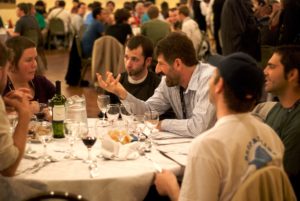Pétanque (pronounced ‘pay-tank’), sometimes called boules, is a game that can be enjoyed by all the family and socially with friends for fun, or more competitively up to European and World Championship levels.
French in origin, it is now played across the world in one form or another and is one of the most inclusive activities available where people of all ages, gender, ability and fitness can play equally together.
The game
The most highly regarded of throws in pétanque is the ‘carreau’. This is when a player shoots their opponent’s boule in such a manner that their boule stops in exactly the same position as the original boule.
Played with hand-sized hollow metal boules on various types of dirt or gravel surfaces, the object is to get as many of your team’s boules closer to a small wooden ball (called the ‘jack’) than that of your opponents.
All boules of one team nearer to the jack than any boule of the opponent’s counts for one point each. Usually all games are up to 13 points.
Classically the sport is a team game of Triples (3 players with 2 boules each) or Doubles (2 players with 3 boules each) though pétanque can also be played as Singles (1 player with 3 boules).
There are two main roles in pétanque:
Pointer – tries to get their boule as close as possible to the jack
Shooter – tries to remove an opponent’s boule
The basic rules are simple and new players can start playing straight away, but the various techniques of pointing and shooting, as well as tactics, can take years to master.
Boules vs Bowls
Unlike in English bowls, where teams always alternate play, in pétanque a team only throws their boule when the opponent’s boule is closer to the jack. So, if your team’s boule is closest to the jack, it is deemed as holding the point and your opponents keep playing their boules until they are closer or out of boules.
Why is it good for you?
Pétanque is perfect as a low impact exercise involving throwing, bending and walking. It also requires team play, concentration, tactics and strategy. Being a relatively inexpensive activity, the social side of the sport is another of its great benefits.
With The Language Guru petanque, you can get to grips with your French language skills at the same time!
How it all began
The origin of boules can probably be traced back to ancient Greeks first tossing coins as far as possible then progressing to round stones. It is believed the Romans then introduced the concept of throwing as near as possible to a target.
Pétanque was allegedly derived in La Ciotat, near Marseille, in 1907 from its ancestor Jeu Provencal after one of the top players could no longer run and throw the boules due to rheumatism. The name pétanque is a derivation of the Provençal word “ped tanca” and means “feet together on the ground”.
Give it a go, book our next Petanque Event in July here
With thanks to www.bbc.co.uk for the information.


